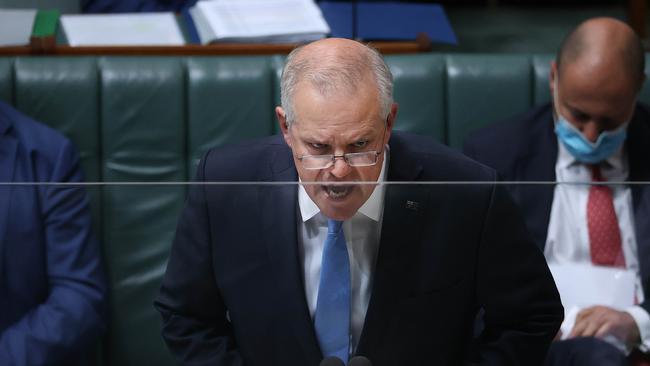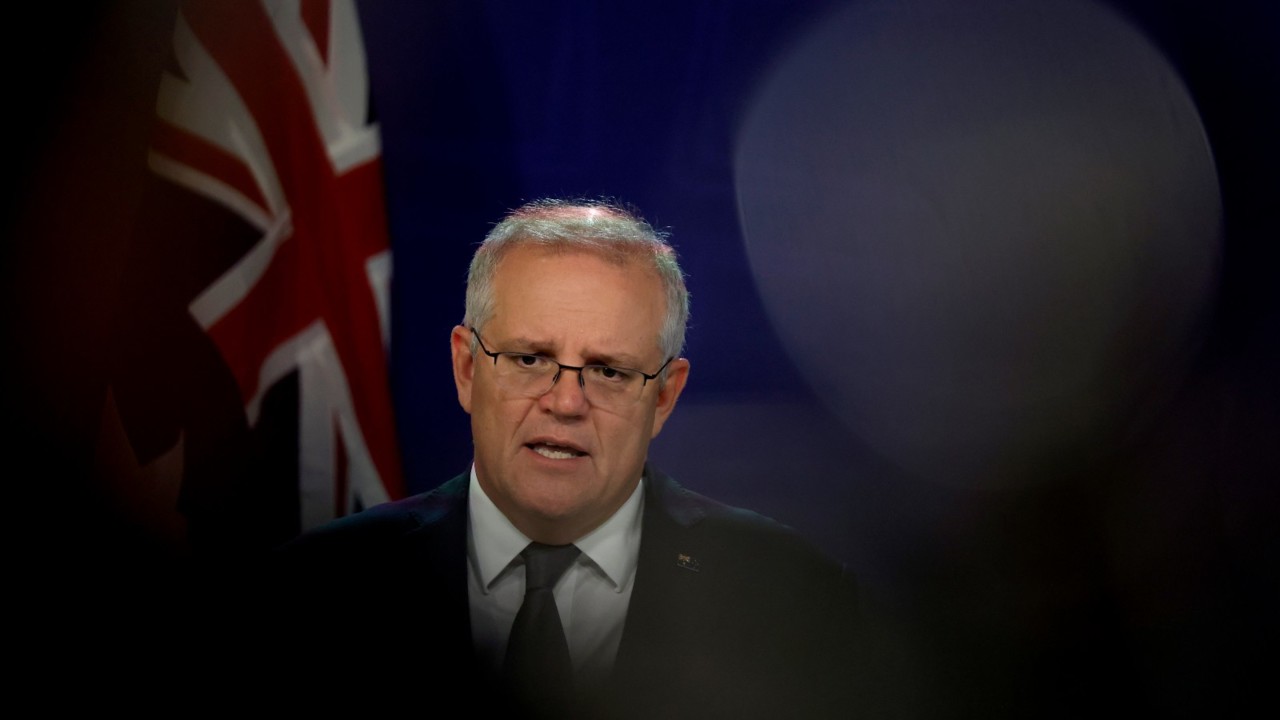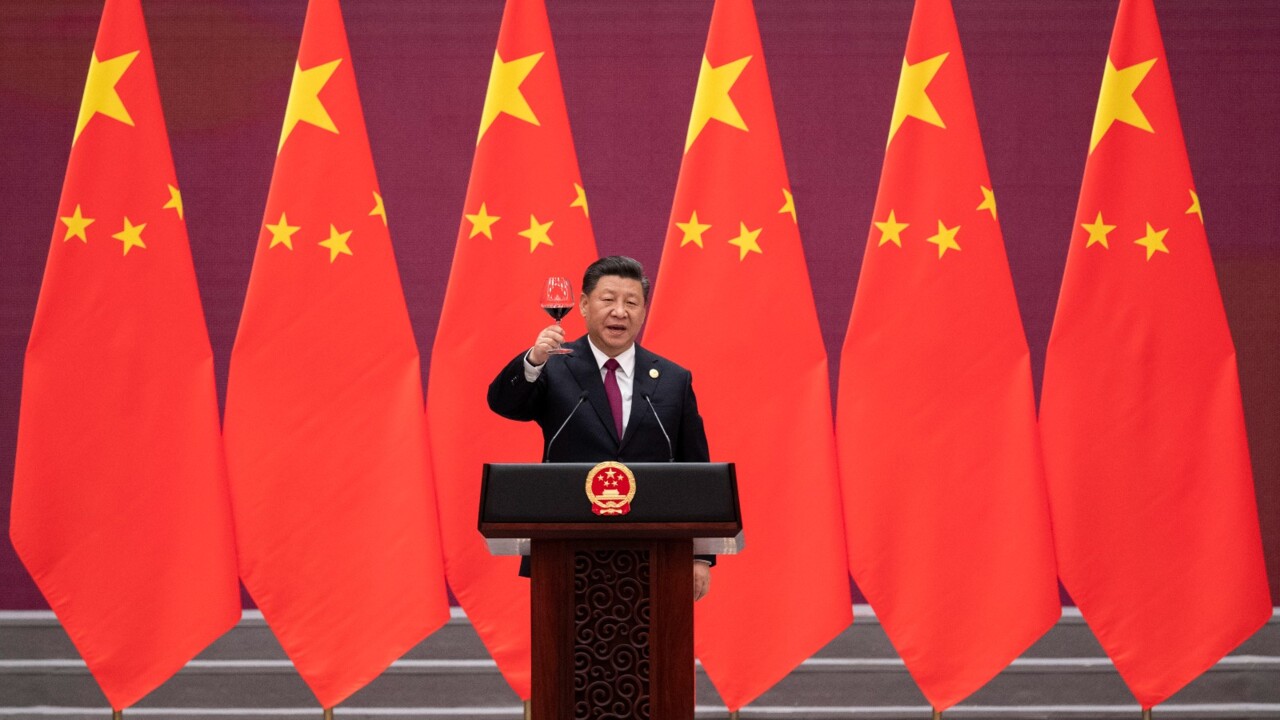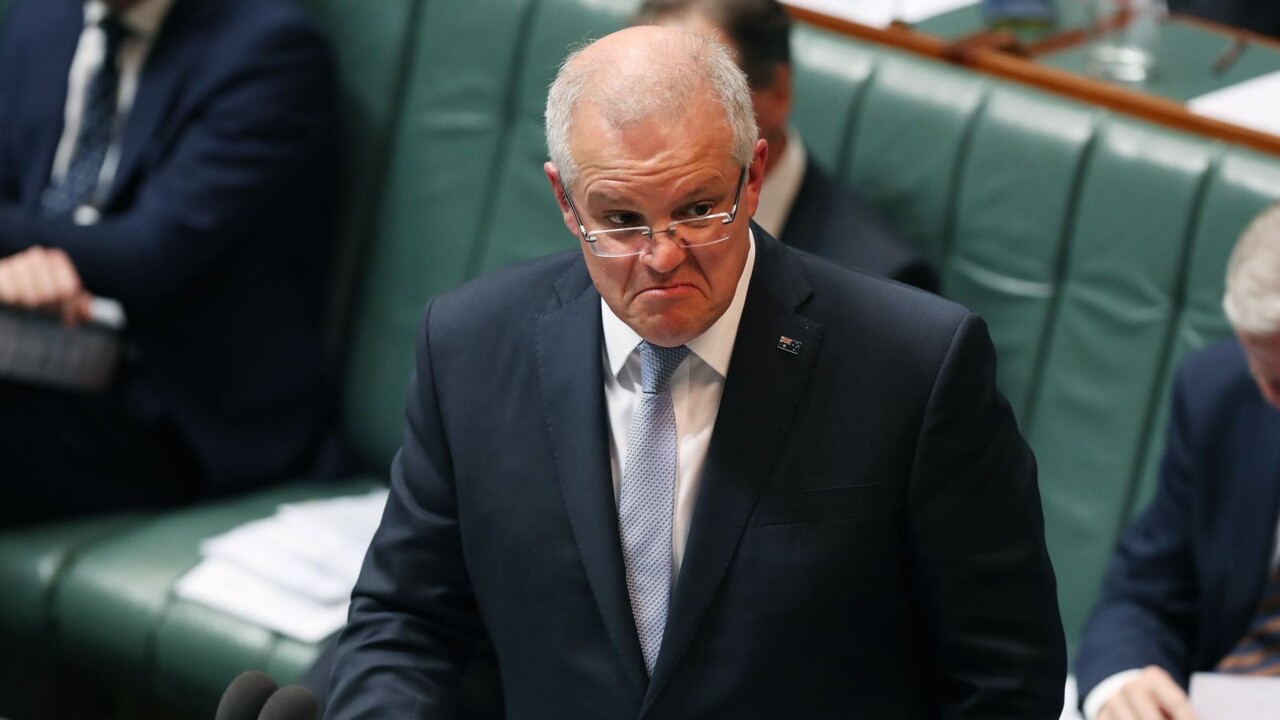
The Morrison government has been extremely strong in standing up to Beijing. However, some things it says about the Labor Party are simply not true. Scott Morrison was completely out of line to call deputy Labor leader Richard Marles “a Manchurian candidate”. To the Prime Minister’s credit, he instantly withdrew the remark.
The term Manchurian candidate comes from the movie of the same name that concerned a US presidential candidate who had been brainwashed by the Chinese to serve Beijing’s strategic interests. Marles is a perfectly patriotic Australian. Overall, the Albanese opposition, like the Bill Shorten opposition before it, has stood with the government in support of the US alliance, and against Beijing’s increasingly aggressive posturing.

There was a period where Labor was inclined to blame the government for the difficulties in the Australia-China relationship. Marles made some comments like this and I criticised him for them. They were an error of judgment, not an indication of weakness on national security. Nor did Marles refrain from criticising Beijing.
In any event, Labor quickly corrected itself as Beijing’s actions became ever more unreasonable. Labor has supported the government in every substantial position it has taken on the South China Sea, on resisting economic coercion, on democracy in Hong Kong, human rights in Xinjiang and on the recently announced AUKUS deal, under which Australia will eventually get nuclear-powered submarines.
For Labor to embrace nuclear-powered submarines is a significant, perhaps historic, change. Anthony Albanese deserves some credit for this.
There have even been a couple of times in more than eight years of conservative government when Labor has been tougher on China than the coalition. The Turnbull government made huge efforts to get parliament to accept an extradition treaty with China. This would have been a legal, moral and political disaster for Australia and in due course we would have had to abrogate, rescind or suspend it. A few brave Liberal dissidents indicated they might cross the floor. Tony Abbott’s intervention was critical. He had rejected the treaty as PM, then came out to oppose it under Malcolm Turnbull.
All this would have meant nothing had not Labor already made its own decision to oppose the treaty in principle. Given the legend within Labor that it does the China relationship better, a legend born out of a wild overestimation of Gough Whitlam’s actions in extending diplomatic recognition to the communist regime in Beijing, a move all US allies undertook once Washington moved, this was quite a big deal for Labor.
Having said all that, there is nonetheless some substance in Morrison’s case against Labor over China. It’s also true that Morrison’s remarks are mild enough compared with what leaders have said about each other in past campaigns.

Recall the 2013 election campaign in which then prime minister Kevin Rudd said Abbott’s policy to “turn back the boats” could lead to armed conflict with Indonesia as the Indonesian Navy would react to such actions as an attack on Indonesian sovereignty. Canvassing armed conflict with Indonesia as a result of opposition policies is perhaps the single most irresponsible national security comment ever made by a prime minister in an election campaign. Of course, Abbott became PM, implemented the boats turnback policy and no conflict with Indonesia ensued. Instead, the policy solved the boatpeople problem and Australia-Indonesia relations improved as a result.
International observers will understand and discount a lot of argy-bargy in an Australian election campaign. There’s a long tradition of governments and oppositions making exaggerated accusations against each other in Western democracies.
In 1964, the Republican US presidential campaign of Barry Goldwater had a slogan: in your heart, you know he’s right, which the Democrats parodied as: in your heart, you know he might, meaning he might use nuclear weapons. Jimmy Carter thought Ronald Reagan would cause war. And so on. It is rare, indeed almost unthinkable, that in a seriously contested election a government would say of any opposition that it is perfectly OK on national security. That requires of politicians what theologians would call an angelic disposition.
So what parts of the Morrison charge against Labor have some substance?
First, the Chinese Communist Party certainly wants Morrison to lose. He has been one of the most outspoken and determined leaders in the world in resisting Beijing’s coercion. He has also been diplomatically important in bringing to birth new groupings that Beijing profoundly dislikes, namely AUKUS and the Quadrilateral Security Dialogue.

Logically, if Beijing wants Morrison to lose, they want Albanese to win. But that is a million miles from saying Albanese is Beijing’s candidate. The circumstance overall reflects no discredit on Albanese at all.
The second ground where Morrison has a real point is that Labor has a terrible record on national security. Before the 2007 election Labor promised a strong defence force but then cut defence spending to the lowest proportion of GDP since 1938. That is not a speculation or a slur, that is fact. In its 2009 defence white paper the Labor government identified a worsening strategic environment and said Australia urgently needed 12 regionally superior conventional submarines. Almost the next day it started ripping money out of defence and did nothing of consequence about the subs. Julia Gillard had no interest in Rudd’s subs. In Australia, each prime minister kills their predecessor’s subs.
That performance remains an enormous shadow over Labor’s credibility on defence and national security. The successful Hawke government, facing a similar credibility problem because of the disastrous national security legacy of the Whitlam government, worked strenuously from day one to show it was serious about defence and national security. If he becomes PM, Albanese should emulate Hawke. The conservatives since 2013 have spent much more on defence, but not actually produced much new capability.
Finally, Labor does contain a significant body of opinion that supports the increasingly deranged, defeatist, pro-Beijing views of Paul Keating. Beijing’s “useful idiots” in the West no longer argue that Chinese communism is really soft and cuddly but just misunderstood. They argue the far more sinister line that China is so powerful that resistance is futile, especially for countries like Australia.
The one good thing about this week’s debate on national security is that both sides are attempting to demonstrate they take it seriously and will be determined. Neither side is yet wholly convincing, notwithstanding the international environment created by Vladimir Putin and Xi Jinping








The argument between the Morrison government and the Albanese opposition over the national security challenge on China takes place against the backdrop of an intense waiting game in Ukraine, as the world holds its breath to see if Russia will invade.